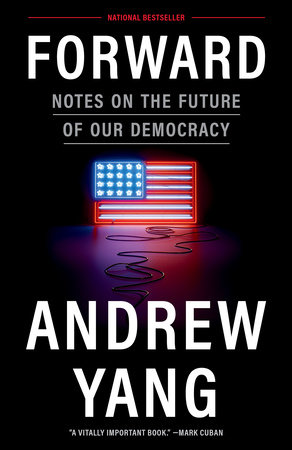Excerpt
Forward
Introduction
Democracy By a Thread Why isn’t it working? That’s a question millions of Americans have been asking about our country. For some time now, many of us have had this growing sense that our way of life and the shared beliefs and expectations that underpin our democracy have become endangered.
We sense that, somewhere along the way, the machinery of our democracy started faltering—and now it is failing.
Politicians tell us to vote and volunteer and endlessly beg us for donations. Many of us do these things. But it’s not doing the trick.
Despite doing all the “right things,” many of us are struggling more than our parents or grandparents did to gain a foothold in the middle class. The digital gadgets in our pockets keep becoming more sophisticated, but our basic ability to distinguish truth from fiction is eroding. We can no longer assume that fundamental functions of American democracy, like the smooth counting of votes on Election Day or the ability of Congress to pass laws, will occur. Some of us have stopped believing in science, while others have simply come to doubt the possibility that brighter days lie ahead. The unprecedented disruption of the COVID-19 pandemic laid our anxieties bare. Unity and consensus seem like fading dreams.
Many of us were surprised and horrified at the ascent of Donald Trump, and yet we sense, on some level, that the aggrieved mistrust and political anger he tapped into were real and will continue to
exist long after he’s gone. As I write this, there is a Democratic majority in D.C. with the slimmest conceivable margins, with Vice President Kamala Harris’s tie-breaking vote in the Senate necessary to get anything done. Democracy hangs by a thread.
How did it come to this?
What happened to our belief in the future?
And, most important, what can we do about it?
I wrote the initial drafts of the chapters that became this book in a feverish stretch in the months following the end of my presidential campaign. I wanted to capture my experiences and what I learned while it was fresh in my mind, and I poured thousands of words a week onto my computer. Even with my presidential campaign over, my sense of urgency remained about the problems we face. Some of these were specific lessons from the campaign trail, like the perverse dance between presidential candidates and the media. Others reflect beliefs I’ve come to hold based on reading, interviews, and working with activists who have spent years trying to sustain our democracy. These initial bits of writing were like a series of mini-essays about the cascading, interrelated set of problems that are growing within our political process and way of governing. Over several drafts, which I completed in early 2021, I shaped these raw writings into proper chapters, stitching them together to form the tapestry of arguments you see here. I hope this book will inspire the same kind of deep reflection in you as my experiences over the past few years inspired in me.
My last book,
The War on Normal People, was about the ongoing dehumanization of our economy and the need to adopt universal basic income (UBI) and how it offers us the best chance to evolve to the next stage of capitalism. That is probably how you first heard about me: as the 2020 presidential candidate who wanted to give everyone money.
The War on Normal People had a powerful but narrow goal: to address the crisis in our economy by promoting universal basic income. That book was published in the spring of 2018, just as I was beginning to campaign for the 2020 Democratic nomination. Three and a half years later, I still have the same vision and concerns. If anything, the intervening years have reinforced my convictions about the perilous state of our economy and our democracy. But my perspective on what ails us and my vision for the future have also deepened and advanced based on what I’ve learned running for office. I now have a better sense of the challenges to our democratic process. Some of the warning signs of the health of our democracy are flashing red, while others lie hidden, like a bit of faulty wiring, waiting to blow.
This book reflects these advances in my thinking. Compared with
The War on Normal People, the scope here is broader, the insights (I hope) are more nuanced, and yet the ultimate theme remains much the same: our economic and political order is facing unprecedented dangers, many of them brought on by new technologies, and only bold new leadership and policies have a chance to overcome decades of political dysfunction and leaders who are rewarded regardless of whether they rise to the challenge.
I’ve spent the lion’s share of the past four years on the move—talking to Americans, listening to their problems, and, through my organization, Humanity Forward, promoting cash relief and experimenting with it at the local level.
In addition to free money, the other thing you might have heard about me is that I’m a solutions guy. And after thousands of hours spent talking to my fellow citizens and thinking of the future, I have a sense of how we can put ourselves back on the path to prosperity.
This book is the road map. It’s about how to make that vision—and, by extension, any actual lasting change on a national scale—a reality. Not in the abstract, but for real. I’ve found the necessary lever, and I’m eager to share it with you.




